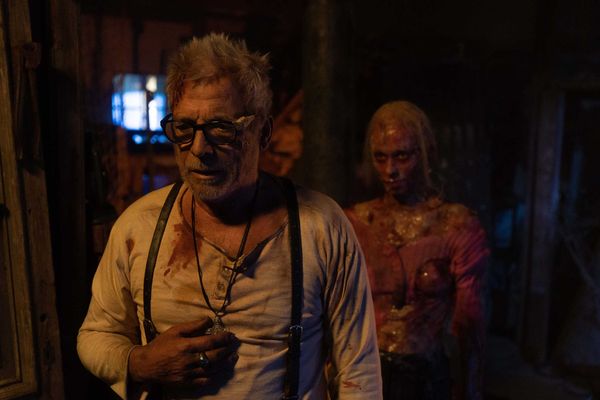Eye For Film >> Movies >> On The 3rd Day (2021) Film Review
On The 3rd Day
Reviewed by: Jennie Kermode

On the third day, according to the Bible, God made the land, the sea and the forests – most people who grew up in majority Abrahamic societies will be familiar with this, but what they may not realise is that this phrase is repeated throughout the book. Lots of significant things happen on the third day. Jonah escapes from the belly of the whale. Christ rises from the dead. Abraham prepares to sacrifice his son. Daniel de la Vega’s hyperbolic horror film aims to shape a narrative in keeping with these traditions, and one much more grandiose than it appears at the start, but the results are decidedly mixed.
It centres on the consequences of a brutal car crash. Cecilia (Mariana Anghileri) is subsequently taken to hospital, but she’s frantic about the fate of her son, who was also injured and whose whereabouts she doesn’t know. A well intentioned doctor tries to help her, but is concerned that she has some underlying pathology, perhaps related to abuse. Her ex-husband is certainly aggressive, but is this a long term issue or is he, too, simply desperate to find out what has happened to the child? As Cecilia begins to behave erratically, haunted by disturbing visions of her little boy in a Don’t Look Now-style red coat, the doctor, a psychologist with dubious methodology and a pair of bullish cops try to get to the truth.

There are some surprisingly heavyweight Argentinian actors involved in this evidently small scale production, but the excruciating English dubbing severely undermines their work. The fate of another woman caught up in the crash at the hands of a sinister cultist turns out to be something more complicated than it first appears to be, but rather than effectively misdirecting viewers it is, in context, likely to direct them to the nearest exit. Clichés like the lead cop having a history of charging in unprepared are similarly problematic, and the tone of the piece is too inconsistent to acquire kitsch appeal.
Weirdly, this spectacular mess of a film delivers, for those patient enough to get to them, a few moments of brilliance. Anghileri is good throughout but really pulls it together towards the end, just as Luciano Onetti’s fantastically overblown string score finds its groove. De la Vega uses familiar elements to create something visually striking at the critical moment, and the uneven emotional tone of the film coalesces into something surprisingly hard hitting. It’s undermined by a twee post-credits sequence which takes us back into bumbling cop territory, but it deserves credit nonetheless. In due course, this director may make films which really matter. This one, however, falls short.
Reviewed on: 06 Jul 2022
















